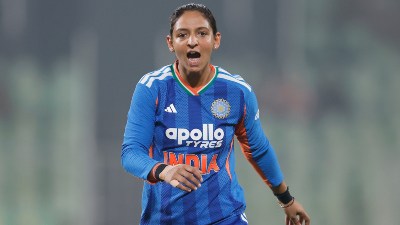Stay updated with the latest - Click here to follow us on Instagram
In the Drivers Seat
A first-of-its-kind exhibition of rare photographs is a tribute to 160 years of the Indian Railways.
The mention of the Indian Railways contrives images that embody quintessential characteristics of living and travelling in India. One is accustomed to the blue-clad berths,the ubiquitous pantry service,the classical music radio that crackles periodically with news announcements,and the vocal food vendors at stations. An exhibition in the Capital aims to rekindle the past glory of one of the oldest and biggest enterprises in the country. Organised by the Ministry of Railways,160 Years of Indian Railways: An exhibition of selected photographs from the archives of Indian Railways,will open on May 24 at the Indira Gandhi National Centre for the Arts.
Over 190 archival photographs map the Indian Railways,from 1853 to now. Much like the prose and literature these locomotives have inspired,and more than being regarded as the carrier of history,the Indian Railways here assumes a personified character,of a mute spectator to the unfolding historical events. The photographs,sourced from the Railway Archives,Press Information Bureau and Railway Museums from the 17 zonal offices throughout the country,are categorised into nine sections. They showcase the railways evolution,not in a chronological manner but in its character. The plan is to bring Indian Railways back into peoples mind and consciousness, says Seema Sharma,Director,Information and Publicity,Indian Railways,who has organised the exhibition.
One section,Locomotives and Trains,is an ode to never-seen-before models of varied kinds,steam and diesel. While one photograph is of a steam engine train bearing an Ashoka Chakra,another shows the engine decorated with British flags. The Personalities section shows leaders such as Jawaharlal Nehru,Mahatma Gandhi and Lal Bahadur Shastri engaging with the railways.
Encompassing the character of the railways are two unique and well-curated segments. Through Station Architecture,one witnesses station sheds during the East India Company. It was after the First War of Independence in 1857 when the British government took over and stations became grand representations of power. The Rajputana stations looked like fortresses. Hyderabads station reflected the Nizams architectural taste,and the Morbi station sees the Saurashtra-type architecture, says Sharma.
The concluding section is dedicated to the workmen in the railways,now at its strongest with over 14 lakh employees. The archival photographs depict railways staff carrying out their roles be it the caterer donning his old uniform from the British days,or a station guard lighting a lamp,a regal figure in uniform. The photographs reflect simpler times, says Sharma,who took six months to select the collection. The exhibition will travel to Mumbai,Kolkata,Sikandrabad,Allahabad,Bangalore and Chennai.
The exhibition is at Twin Art Gallery,IGNCA,CV Mess,Janpath,till June 2 from 10.30 am to 7 pm. Entry is free. Contact 23385072
RIGHT ON TRACK
The first line was built between Boree Bunder (Mumbai) and Thane in November 1852,a distance of 34 km. However,the first train (in India and Asia) was officially flagged off on April 16,1853. The day was declared a public holiday in Mumbai.
The first city to have the railway was supposed to be Kolkata. Locomotive and carriages for Bombay and Howrah were dispatched from England at the same time,but the ship carrying the locomotive for Howrah was misdirected to Australia and the one with carriages sank in the Bay of Bengal. The first passenger train from Howrah to Hooghly then ran on August 15,1854.
The first toilets in the Indian trains came in 1891.
The Darjeeling Himalayan Railway,considered an engineering feat when it opened in March 1880,is a world heritage site.
India has had 42 railway companies at the same time.







